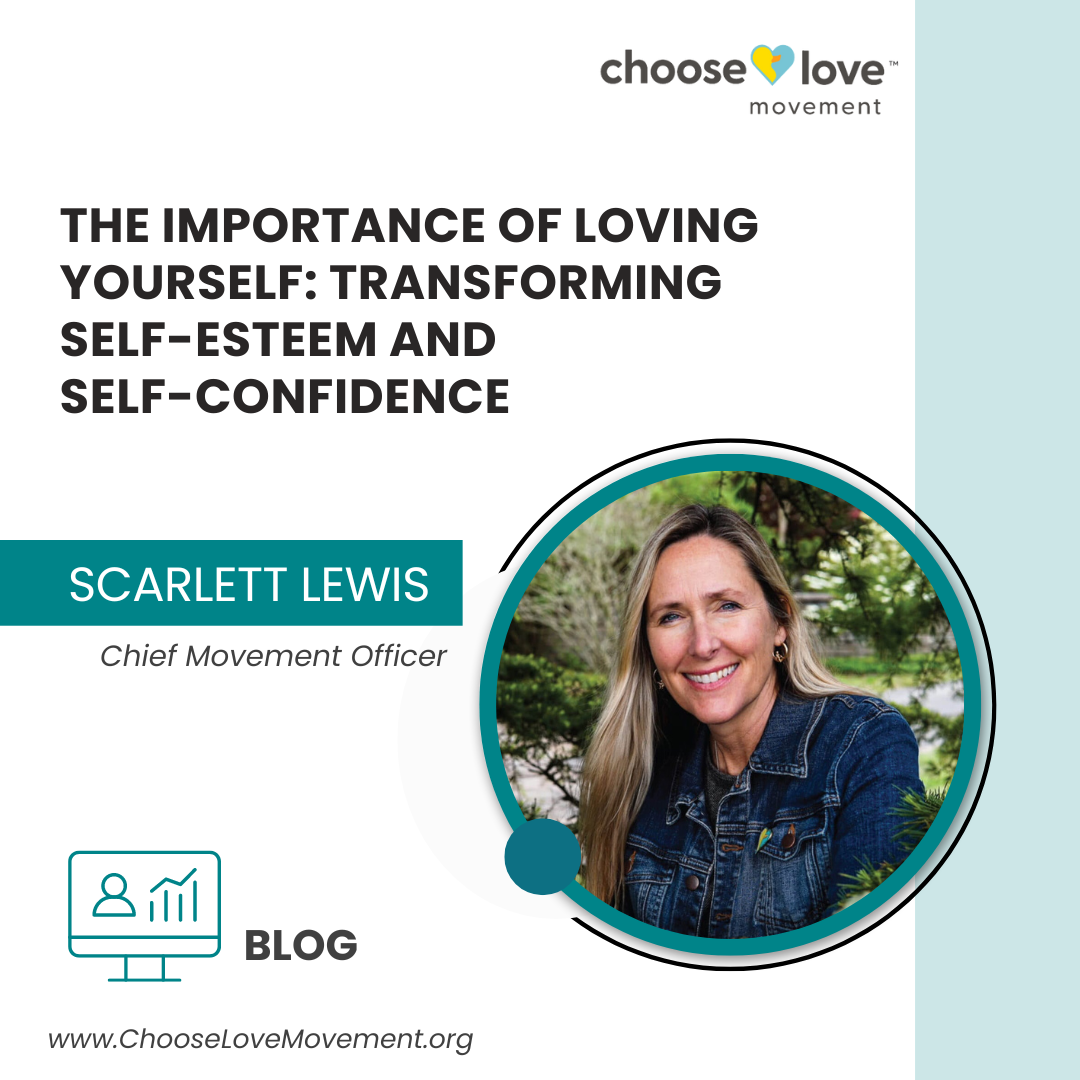By Scarlett Lewis, Chief Movement Officer
In the quest for personal growth and emotional well-being, the importance of loving oneself emerges as a cornerstone, embodying self-esteem, self-confidence, and an intrinsic recognition of one’s inherent worth. Despite the universal need for this self-recognition, a staggering 85% of individuals grapple with low self-esteem, reflecting a crisis of confidence that permeates age groups but is particularly alarming among children. This deficiency not only hampers personal growth but also lays the foundation for a multitude of psychological challenges.
The Detriments of Low Self-Esteem
Research underscores the myriad problems stemming from low self-esteem, ranging from compromised academic performance to increased vulnerability to mental health issues such as depression and anxiety. In children, the impact is especially profound, affecting social integration, academic achievements, and overall happiness. The origins of low self-esteem can often be traced to a brain hardwired for negativity bias—a protective mechanism designed to keep us safe by preparing for the worst.
Our brains, vigilant in their quest to shield us, inadvertently craft narratives of unworthiness, perpetuating cycles of self-doubt. This innate tendency, while evolutionary beneficial, necessitates conscious effort to foster self-esteem and courage, enabling individuals to challenge their self-imposed limitations and embrace their potential.
The Choose Love Formula™: A Blueprint for Self-Empowerment
The Choose Love Formula™—comprising courage, gratitude, forgiveness, and compassion-in-action—offers a potent antidote to the scourge of low self-esteem. By embracing these character values, individuals can counteract their brain’s negativity bias, paving the way for personal transformation.
1. Courage allows us to confront our fears and limitations, encouraging a narrative of self-efficacy and resilience. Studies have shown that acts of bravery, no matter how small, can significantly boost self-confidence, empowering individuals to undertake challenges previously deemed insurmountable.
2. Gratitude shifts focus from what we lack to what we possess, fostering a sense of abundance and contentment. Research from universities like UC Davis highlights that regular practices of gratitude can enhance psychological well-being, elevating mood and fostering a positive self-view.
3. Forgiveness, including self-forgiveness, liberates individuals from the shackles of past mistakes. It encourages a compassionate self-discourse, crucial for healing and self-esteem. Research indicates that forgiveness can alleviate stress and promote emotional wellbeing.
4. Compassion-in-Action prompts us to extend kindness not only to others but to ourselves, nurturing a sense of connection and worthiness. Studies demonstrate that compassion can decrease feelings of isolation and depression, reinforcing a positive self-image.
Rewiring the Brain for Positivity
Regularly practicing these character values can fundamentally rewire the brain, mitigating its negativity bias and fostering an environment where self-love and confidence can flourish. Neuroplasticity, the brain’s ability to form new neural connections in response to experience, means that through consistent application of the Choose Love formula, individuals can cultivate a more positive, affirming internal narrative.
Empirical evidence supports the transformative power of these practices. Data from various universities elucidate how engaging with these values not only elevates personal well-being but also enhances social connectivity and empathy, contributing to a healthier, more resilient self-concept.
Conclusion
The journey toward loving oneself, fraught with the challenges of overcoming ingrained negative biases, is imperative for achieving a fulfilled life. Through the deliberate practice of courage, gratitude, forgiveness, and compassion, individuals can dismantle the barriers erected by low self-esteem, emerging empowered and confident. The Choose Love Formula™ not only offers a path to personal transformation but also serves as a testament to the human capacity for change and growth, affirming the profound truth that we are, indeed, worthy of our own love.




